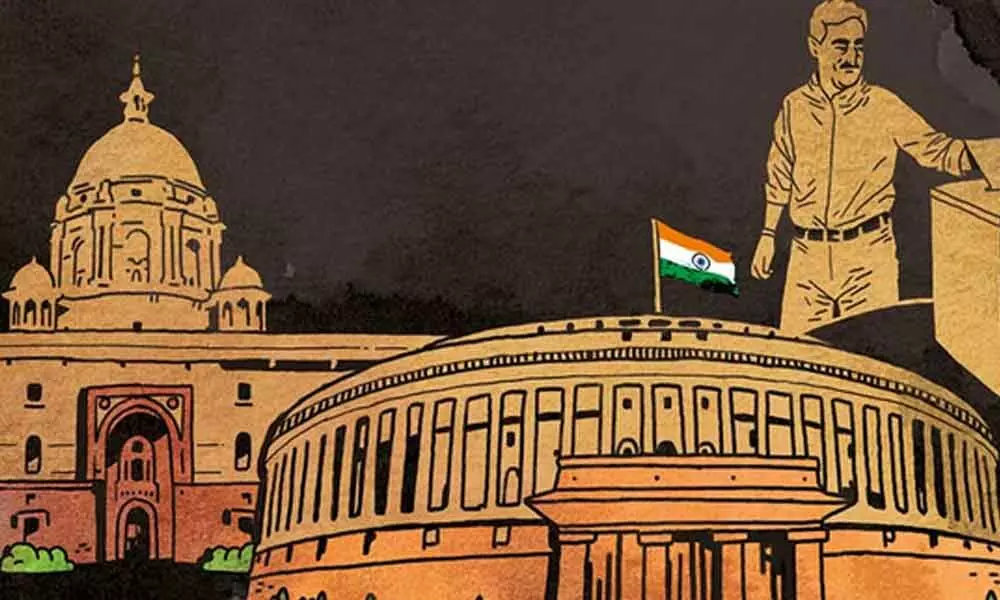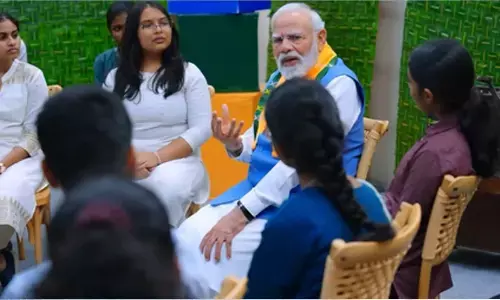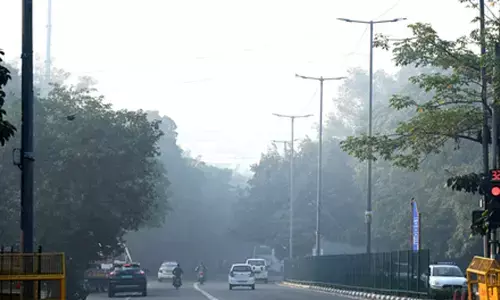Concept of Parliamentary democracy goes for a toss
 Concept of Parliamentary democracy goes for a toss
Concept of Parliamentary democracy goes for a tossA new tendency has creeped into Indian politics. The ruling parties - be in the State or the Centre - are not willing to accept any kind of criticism
A new tendency has creeped into Indian politics. The ruling parties - be in the State or the Centre - are not willing to accept any kind of criticism. The intolerance towards criticism has been on the increase over the last decade or so and in the last six years it has taken new dimensions.
Now it seems to have reached a new high where even a comment or observation by the Governor of respective State is being seen giving ammunition to the Opposition. Earlier it was thought that the situation was so in States because of regional parties winning elections with absolute majority. But the national parties too are proving that they are no different.
In the past, all governments used to ponder over the criticism by the media, Opposition or even the Governor and take necessary corrective steps. But now governments are issuing GOs giving absolute powers to the officials to file cases if they feel that some news report, editorial or an article is critical of the acts of the government and are preventing the Opposition from protesting against the omissions and commissions of the executive.
Now a stage has come where the governments are becoming too sensitive towards any remark even by the Governors of the respective States. They want the Governors to be mere rubber stamps.
The institution of Governor is a disputed phase of Indian democracy. Agent of the Centre, puppet and rubber stamp are some of the terms used to describe him/her. The then Governor of Uttar Pradesh, Sarojini Naidu, had famously said: "I am a bird in a golden cage".
She was referring to the limited political role of a State Governor. Though the Governor, according to the Constitution, is the head of a State just like the President, he is just a nominal head while the Chief Minister is the executive head, all executive actions of the State are taken in the name of the Governor. He or she is devoid of taking any major decisions.
The real powers in the executive dealings of a State rest with the Chief Minister and the Council of Ministers. But then, the question is does this mean that they cannot make even indirect comment against what is happening in the State of which they are the first citizens?
The argument of the executive on all such occasions is that 'ours' is a Parliamentary form of government. When a Cabinet is collectively responsible to the legislature, is to render aid and advice to the Governor, he is conventionally expected to accept such an advice.
Occasions should almost be non-existent for him to act contrary to their advice.' But does that mean that they should keep silent even if they notice some shortcomings in the administration?
If the objections raised by the Telangana government towards certain observations made by the Governor of handling of Covid-19 cases and low rate of testing is any indication, it is evident that they want that the Governor to confine herself to the precincts of Raj Bhavan and invite visitors and invitees to lunch and dinner and inaugurate the first session of the State legislature each year outlining the new administrative policies of the ruling government.
Well, while this is one side of the coin, we have also seen that on many occasions, the office of the State Governor has often courted controversy for the incumbent's political views. The latest example of this trend is Kerala Governor Arif Mohammad Khan.
Addressing the 80th session of the Indian History Congress in Kannur recently, he slammed those protesting against the Citizenship (Amendment) Act (CAA) and the National Register of Citizens (NCR) as "stinking potholes". The distasteful remark was preceded by Meghalaya Governor Tathagata Roy asking those opposing divisive politics in the Northeast to go to North Korea.
The then Rajasthan Governor, Kalyan Singh, also crossed the line. During 2019 Lok Sabha elections, he said: "As a worker of the BJP, I genuinely want the party to win. It is important for the nation and society that Narendra Modi should become the Prime Minister again."
He remained unfazed by the Election Commission's reprimand that he was in violation of the model code of conduct. It is time for fine tuning the Constitutional bodies and restore Dr Ambedkar's concept of parliamentary democracy so that importance of every wing was well protected.










